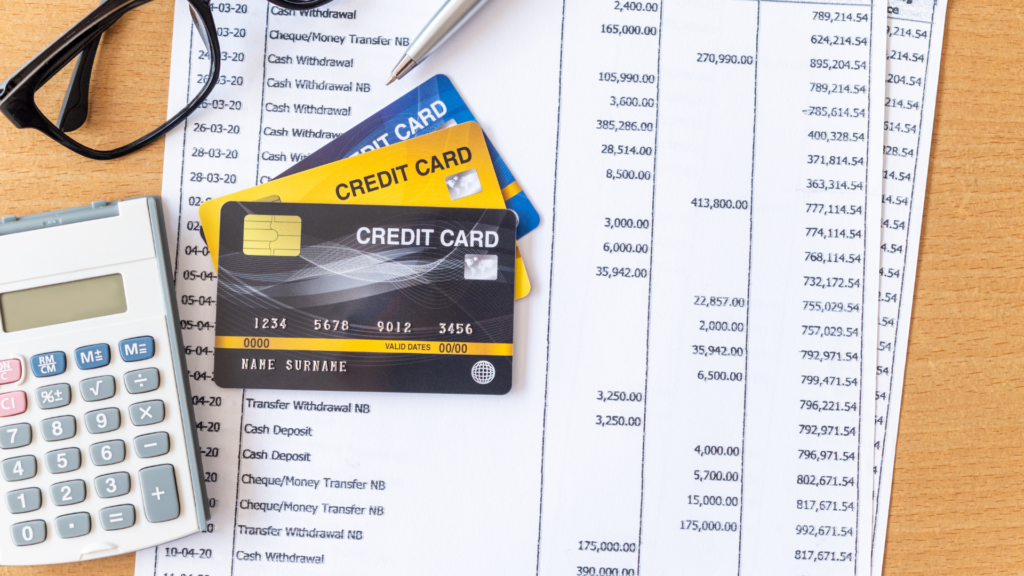How to Financially Prepare for Divorce
Are you facing the possibility of divorce? The financial implications can be overwhelming, but proper planning makes all the difference. This comprehensive guide walks you through the essential financial preparation steps before divorce proceedings begin. Don’t wait until papers are filed to start protecting your financial future—the decisions you make now will impact your stability for years to come. If you are contemplating divorce, start today to financially prepare for divorce.
Key Take Aways
- Start gathering financial documents immediately
- Take complete inventory of all assets and liabilities
- Establish financial independence with separate accounts
- Build your own credit history
- Create a realistic post-divorce budget
- Seek professional financial advice
The Hidden Financial Impact of Divorce
Divorce isn’t just emotionally challenging—it’s financially transformative. Financial preparation for divorce should begin the moment you consider ending your marriage. Many people focus solely on immediate legal concerns while overlooking crucial financial planning steps. As a result, they face preventable financial hardships after their divorce finalizes.
Why does this matter? Because divorce typically reduces household wealth by 50% while expenses decrease by only 20-30%. Furthermore, research shows divorced individuals need more than a 30% income increase to maintain their previous lifestyle. Planning ahead helps minimize these financial shocks.
Know Your Current Financial Situation
The foundation of financial preparation for divorce is knowing exactly where you stand. Begin by collecting essential financial documents and creating a comprehensive inventory of assets and liabilities.
Essential Documents to Gather
Start collecting these documents immediately:
- Tax returns (past 3-5 years)
- Pay stubs and income verification
- Bank statements for all accounts
- Credit card statements
- Mortgage documents
- Investment and retirement account statements
- Insurance policies
- Vehicle titles and loan documents
- Property deeds
Additionally, create a detailed list of your household budget, including all income sources and monthly expenses. This information establishes a baseline for negotiations and helps identify potential financial issues early in the process.
Taking Inventory of All Assets
Create a complete list of everything you own jointly and separately. Therefore, include:
- Real estate (primary home, vacation properties, land)
- Vehicles (cars, boats, motorcycles, recreational vehicles)
- Home furnishings and appliances
- Jewelry and collectibles
- Artwork and antiques
- Electronics and equipment
- Investment accounts
- Retirement accounts (401(k)s, IRAs, pensions)
- Business interests
- Intellectual property
For each asset, note the approximate current value, when and how it was acquired, and whether it’s considered separate or marital property under your state’s laws. This is important in order to financially prepare for divorce.

Understanding Your Liabilities
Next, catalog all debts and financial obligations:
- Mortgage and home equity loans
- Auto loans
- Credit card balances
- Student loans
- Personal loans
- Business loans
- Tax liabilities
- Medical debt
For each liability, document the current balance, monthly payment, interest rate, and whose name appears on the account. Moreover, obtain your credit report to ensure you haven’t overlooked any joint obligations that could affect your financial future.
Creating a Complete Financial Picture
Once you’ve gathered this information, organize it into a comprehensive financial snapshot. This overview helps you understand your true financial position before negotiations begin. Additionally, it provides critical insights into:
- Your net worth (assets minus liabilities)
- Monthly cash flow (income versus expenses)
- Available liquid assets
- Potential financial vulnerabilities
Many divorce attorneys and financial advisors offer financial worksheet templates to help organize this information. Furthermore, digital tools like spreadsheets or financial planning apps can help track and categorize your financial details.
Establish Financial Independence
Taking steps toward financial independence before divorce proceedings begin provides stability and protection. Moreover, it demonstrates financial responsibility that can benefit your position during settlement discussions when you financially prepare for divorce
Create Separate Financial Accounts
Open individual bank accounts and credit cards in your name only. However, avoid moving large sums from joint accounts without legal advice, as this could appear suspicious. Instead, focus on building your own credit identity through responsible use of new accounts.
For example:
- Open a checking account at a different bank from your joint accounts
- Set up direct deposit for a portion of your income to your personal account
- Establish an individual savings account for emergency funds
- Apply for a credit card solely in your name
These separate accounts create financial boundaries and help you establish independence. Additionally, they provide a safe place to manage your personal finances during divorce proceedings.
Build Your Credit Score
Your credit score significantly impacts your financial options after divorce. Therefore, check your credit report for errors and disputed accounts. Then, establish credit in your own name by:
- Opening a secured credit card if necessary
- Making small, regular purchases and paying them off promptly
- Keeping credit utilization below 30%
- Maintaining on-time payments for all bills
- Becoming an authorized user on a responsible relative’s account
A strong credit score gives you access to better financing terms for post-divorce housing and other necessities. Furthermore, regular monitoring of your credit report helps catch any issues that might arise during separation.
Creating a Post Divorce Budget
Financial preparation for divorce must include a forward-looking budget. Your post-divorce budget will differ significantly from your married budget. Consider:
- Housing costs (mortgage/rent, utilities, maintenance)
- Health insurance (especially if previously covered by spouse’s plan)
- Childcare expenses
- Transportation costs
- Debt payments
- Savings and investments
Many newly divorced individuals underestimate their expenses, leading to financial strain. Therefore, track your current spending for several months to develop an accurate forecast of future needs.
Start by analyzing your current household expenses. Then, project how these costs will change after divorce. For instance, housing may increase significantly if you need to establish a separate residence. Additionally, consider one-time expenses related to the divorce itself, such as:
- Moving costs
- New household setup expenses
- Legal fees
- Financial advisor fees
Creating this budget helps set realistic expectations for your post-divorce lifestyle and also helps to financially prepare for divorce. Moreover, it provides valuable information for negotiating financial settlements and support arrangements.
Working With Financial Professionals
Navigating the financial aspects of divorce requires specialized expertise. For this reason, working with qualified professionals is one of the most important investments you can make.
Consider consulting:
- Certified Divorce Financial Analyst (CDFA)
- Financial advisor with divorce experience
- Accountant familiar with divorce tax issues
These professionals can help identify the most financially advantageous approaches to property division and settlement. Additionally, they can assist with creating realistic financial projections based on different settlement scenarios.
When choosing financial professionals, look for:
- Specific experience with divorce cases
- Credentials and specialized training
- Communication style that makes you comfortable
- Willingness to work with your attorney
Professional guidance helps ensure you make informed decisions rather than emotionally-driven choices during this challenging time.
Final Thoughts
Financial preparation for divorce represents one of the most important steps you can take during this challenging transition. By gathering information, establishing independence, and creating realistic plans, you position yourself for future stability. Remember that each financial decision during divorce has long-term implications—approach them with careful consideration rather than emotional reactions.
While the journey may seem overwhelming now, taking systematic steps toward financial preparation provides both practical benefits and emotional peace of mind during an otherwise turbulent time. With proper planning and professional guidance, you can navigate this difficult transition and emerge with a solid foundation for your financial future.
FAQ's
When should I start financially preparing for divorce?
Can I withdraw money from joint accounts before filing for divorce?
How do I determine what qualifies as marital property versus separate property?
What financial documents are most important to gather before divorce?
How can I protect my credit score during divorce?
Disclaimer
The information provided in this blog is for general informational purposes only and should not be considered as legal, financial, or tax advice. Every divorce situation is unique, and laws vary by state and country. This content is not a substitute for professional advice from a qualified attorney, financial advisor, or tax professional who can address your specific circumstances.
Before making any financial decisions during divorce proceedings, we strongly recommend consulting with appropriate professionals. The author and publisher of this blog assume no responsibility for errors, inaccuracies, omissions, or any inconsistency herein. Any use of this information is strictly at your own risk.
This blog may contain references to products or services from third parties. These references do not constitute an endorsement of these products or services. Financial preparation strategies discussed may not be suitable for everyone and outcomes cannot be guaranteed.

About Esther
Esther C. Moore is a family law attorney with over 27 years of experience, including high-conflict child custody and divorce cases. As the CEO of All Rise Solutions, LLC, Esther provides coaching, online courses, and resources to help individuals navigate the legal system when dealing with complex family law matters, including mediation in high-conflict divorce. With a deep understanding of how narcissistic dynamics impact custody and divorce proceedings, Esther is committed to empowering individuals with the knowledge and tools they need to protect their rights.






